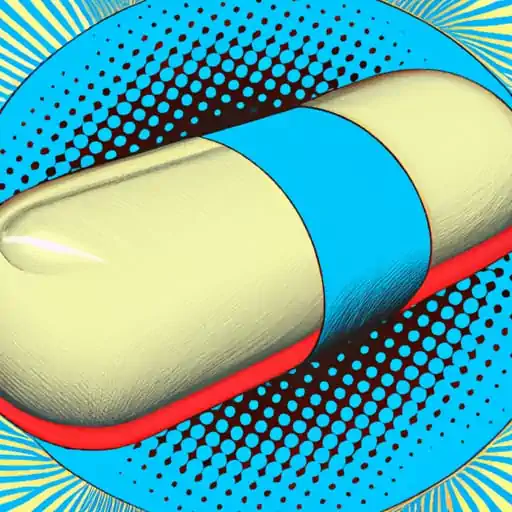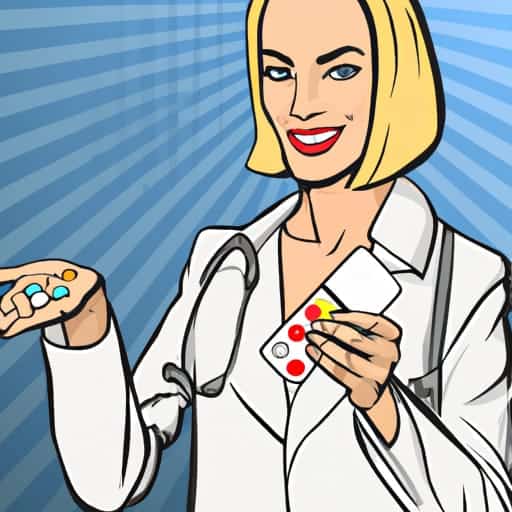Depression, Menopause and Antidepressants: Menopausal Depression Solutions

During menopause, a lot of women have changes in mood, hot flashes, weight gain, and trouble sleeping. Some women may find relief from these symptoms with hormone replacement therapy (HRT), with or without antidepressants, while others may prefer to try natural treatments.
There are a number of natural ways to treat the symptoms of menopause depression, like hormone imbalance, insomnia, weight gain, and loss of libido.
Exercise, yoga, meditation, cognitive behavioural therapy (CBT), dietary changes, supplements like evening primrose oil and omega-3 fatty acids, herbs like black cohosh and St. John’s wort, or reiki are some of the most common natural treatments for menopause depression.
But it’s important to be careful when trying out these options, since some of them could cause side effects or interact with other medicines. We hope that our blog about natural treatments for depression during menopause will help you decide how to treat yourself.
Popular Natural Remedies for Menopause Depression
Menopause is the time when a woman goes from being able to have children to not being able to have children. Many women go through mood swings, anxiety, irritability, and depression during this time.
Antidepressants are available for menopause depression, but many women prefer to try natural therapies first. Natural remedies like these have been shown to reduce depression symptoms and boost mental health.

Risk Factors Associated with Antidepressants and Natural Treatments
Antidepressants are an important option for many depressed women, but there are a few things to think about when choosing the right one for you. First, the type of antidepressant you choose will depend on your symptoms and medical history. Different antidepressants may be good for treating different kinds of depression, such as severe or long-term depression, but they all work by bringing the serotonin and glutamate pathways in the brain back into balance. This can make symptoms like tiredness, sadness, and irritability less severe.
Second, your doctor should talk to you about natural ways to treat depression caused by menopause. These include dietary supplements like vitamin E or omega-3 fatty acids, herbal treatments like St. John’s wort or black cohosh, and alternative treatments like acupuncture or psychotherapy. When you and your doctor talk about these options, it’s important to talk about any worries you have about side effects and how well they work.
Genetics and family history of depression
According to research, certain family members are at a higher risk of developing depression. Besides family history, there are other risk factors associated with the development of depression. These factors include: a mental illness in family members, age, gender, and socio-economic status. Genetic and environmental factors can play a role in the development of depression. Other than family history and genetic factors, age and gender have been shown to be risk factors for developing depression. A family member with a mental illness is another risk factor why someone might get depressed. Additionally, social isolation is also known as a major contributor to the development of depression.
History of Postnatal Depression
Research suggests that postnatal depression (PND) is a serious health issue that can have lasting effects on both mother and child. In fact, up to 20% of mothers who experience PND experience symptoms for 6 months or more after giving birth, and about 75% of children with PND experience long-term behavioral problems.
While there are numerous factors that contribute to the risk of PND, including genetics and lifestyle, certain risk factors are known to be more common than others. Some of the more commonly identified risk factors include: exposure to family members with PND; a history of mental health problems; maternal mental health problems; and a history of substance abuse. With these risks in mind, it is important for health care providers to take steps to minimize the likelihood of PND in their patients by educating them about the disease and providing support throughout treatment. By taking steps to prevent PND, health care providers can help ensure that mothers and their infants are as healthy as possible during this critical time period.
What is perimenopause: first signs to know
Perimenopause is the time in a woman’s life when her ovaries stop producing eggs and start to make less estrogen. This is an important time because it can influence a woman’s mood, energy, sexual desire, weight, and more.
During this time, many women experience symptoms such as hot flashes and other types of night sweats. Some women also experience vaginal dryness or irritation. As these symptoms strike, you may wonder what you can do to ease them.
The good news is that there are natural treatments for perimenopause depression that can help you feel better and live comfortably during this time. It’s important to talk to your doctor about any concerns you have regarding perimenopause and mental health treatment options.
Irregular periods
Perimenopause is a transitional period that women go through after having reached the menopause. During this time, women may experience irregular periods, and it may be challenging to determine if these are due to the transition or if they are an indication of underlying issues. If irregular periods are occurring during perimenopause, it is important to see a doctor for an evaluation. It may be helpful to conduct a thorough health assessment and have blood tests done to determine if there are any underlying health problems that may be causing the irregular bleeding. In some cases, a doctor may recommend hormonal treatment to help ease symptoms and synchronize the menstrual cycle.
Irregular periods can indicate several things:
If you are experiencing irregular periods during perimenopause, it’s important to see a doctor for an evaluation. Irregular periods can indicate several things: If you suspect that your current treatment for your period problems is not working or if you have any other concerns about your period cycle, seeing a doctor can help determine the best treatment options for you.
Changes in menstrual cycle
Perimenopause is a time of significant change for women as their reproductive years come to an end. During perimenopause, a woman’s menstrual cycle may become irregular, change in length, or stop altogether. She may also experience changes in the volume and flow of her vaginal discharge.
Perimenopause can be a challenging time for women as many physical, emotional, and mental changes can occur. It’s important to recognize the symptoms of perimenopause and seek medical help if they are severe or persistent. Understanding the changes that occur during this period can help women feel more comfortable with the transition.
Hot flashes
Hot flashes are one of the most common symptoms of perimenopause. During this time, women experience higher levels of estrogen and lower levels of progesterone. As a result, hot flashes, characterized by sudden and intense feeling of warmth in the face, neck, and upper chest, may occur. Hot flashes are often accompanied by other peri menopausal symptoms including heightened anxiety and irritability, insomnia, and difficulty concentrating. Hot flashes can be extremely uncomfortable and may cause significant emotional and physical stress for women. However, it is important to remember that these symptoms are only temporary and will eventually subside with time.
Output: Hot flashes are one of the most common symptoms experienced during perimenopause. They are characterized by sudden, intense feelings of warmth in the face, neck, and upper chest. Other common peri menopausal symptoms include increased anxiety and irritability, insomnia, and difficulty concentrating. Hot flashes can be extremely uncomfortable and may cause significant emotional and physical stress for women. However hot flashes are a normal part of the peri menopause process and will eventually subside with time. It is important to remember that hot flashes are not a sign of impending health problems or a sign that something is wrong with you as a woman; they are simply a symptom of hormonal change occurring during perimenopause.
Weight gain or loss
Perimenopause is a transitional period that affects many women, and can cause weight gain and/or loss. With this in mind, it is important to be aware of the first signs of perimenopause so you can take steps to prevent or manage it. Weight gain or loss is one of the first signs that something may be wrong with your body. During perimenopause, your body produces less estrogen, which can lead to weight gain and/or loss. However, if you notice any other symptoms such as fatigue, depression, decreased sex drive, or night sweats, you should consult a healthcare professional. You can also work toward achieving a healthy weight during perimenopause by making healthy food choices and regularly engaging in physical activity.
Sleep disturbances
Sleep disturbances are common in women going through the perimenopause stage. As estrogen levels decline, it can lead to a variety of symptoms such as insomnia, anxiety, and weight gain. There are several natural treatments for sleep disorders during this period, including aromatherapy and exercise. However, it is always best to consult with a health professional if necessary.
Output: Perimenopause is a unique phase of female life characterized by changes in hormonal levels and often includes sleep disturbance. Common sleep problems during perimenopause include insomnia, morning headaches, and trouble falling or staying asleep. These symptoms can have serious health consequences and should be treated by a health professional.
It is important to stay healthy throughout the perimenopause stage by maintaining a healthy diet, exercise routine, and by taking medications as prescribed by a health care provider. Moreover, it is vital to manage stress and engage in activities that bring enjoyment and distraction into daily life.

Mood swings and irritability
Perimenopause is a time of transition for many women. As a woman’s hormones change, she may experience mood swings, increased feelings of anxiety, and irritability like the women pictured above.
Perimenopause can be especially difficult for women who are already experiencing mental health issues. However, there are steps that can be taken to support your mental health during this period. In addition to getting professional help if necessary, you can make sure your daily routine includes activities that bring you joy and help you manage stress. This may include exercise, spending time with family and friends, or pursuing a hobby.
How to cope with Perimenopause mood swings
Women going through perimenopause may experience mood swings and increased feelings of anxiety. To cope with this stage of life, it’s important to maintain a balanced lifestyle and seek support from family members and trusted friends. It’s also important to take care of yourself by eating well and getting enough sleep. These steps can help reduce the symptoms of perimenopause and improve your mental health over the long-term.
Can menopause cause depression?
Yes, menopause can cause depression. This is because of the emotional and physical changes that occur during this time. As your body’s hormones change, you may experience mood swings, anxiety, and difficulty sleeping.
Additionally, your ability to think positively and be motivated may decrease, which can lead to feelings of hopelessness and a decreased sense of vitality and well-being. Other symptoms of menopause include headaches, nausea, irritability, breast tenderness, and fatigue. If you experience any of these symptoms, talk to your doctor about the possibility of menopause causing depression.
The effects of menopause on mental health
Menopause is known to have a profound impact on mental health, which can vary depending on a number of factors, including a woman’s age at menopause, her current level of mental health, and the type of menopause she experiences.
As a general rule, women who experience early menopause (before age 45) are more likely to experience mental health issues than women who experience late menopause (after age 55).
At the same time, some women may experience mental health problems regardless of their age at menopause. This is especially true for women who have had long periods between pregnancies or who have experienced poor reproductive outcomes. Overall, it is critical that women experiencing menopause receive appropriate mental health services to help them cope with the changes in their lives and promote their mental health and well-being.
Risk factors associated with reproductive depression
Risk factors for reproductive depression include the following: having a hormone imbalance, age, and stress. Hormone imbalances can lead to low levels of estrogen and high levels of androstenedione, leading to reproductive depression. Additionally, age is another risk factor for reproductive depression; as women age, their hormonal system can become less stable, resulting in lower levels of estrogen and higher levels of androstenedione. In addition to age and hormonal status, stress can also play a role in reproductive depression.
Women may experience reproductive depression after pregnancy or when going through menopause. This happens when hormonal changes caused by the sudden change in hormones after pregnancy or menopause results in decreased sexual desire or interest, Mood swings, or changes in sleeping and eating habits. Women who experience this may start experiencing these symptoms during or after pregnancy or menopause.
Other risk factors for reproductive depression include having a hormone imbalance as well as aging.

Antidepressants: types, side effects, uses, and risks
Antidepressants are widely used for treating depression. They are effective but have many side effects and can be costly. When choosing antidepressants, it’s important to understand their types, side effects, uses, and risks.
It’s important to first understand the different types of antidepressants.
There are various categories:
- Ticyclic antidepressants (TCAs)
- Selective serotonin reuptagens (SSRIs)
- Serotonin and norepinephrine reuptake inhibitors (SNRIs)
- Monoamine oxidase inhibitors (MAOIs)
The TCAs are older drugs that were once popular but have been replaced by SSRIs due to their greater effectiveness and fewer side effects. Both antidepressants treat depression by increasing the levels of serotonin in the brain.
Selective serotonin reuptake inhibitors (SSRIs)
Selective serotonin reuptake inhibitors (SSRIs) are antidepressants that work by increasing the levels of the neurotransmitter serotonin in the brain. They are typically used to treat depression, anxiety, and other mood disorders.
While SSRIs are considered safe and effective treatments for these conditions, they do have some side effects and risks. Most people experience mild to moderate side effects when taking SSRIs such as nausea, diarrhea, insomnia, dry mouth, increased appetite, and sexual dysfunction.
However, some people may experience more serious side effects such as nausea, dizziness, increased blood pressure, sexual dysfunction, or serotonin syndrome.
Serotonin and norepinephrine reuptake inhibitors (SNRIs)
Serotonin and norepinephrine reuptake inhibitors (SNRIs) are a class of antidepressants that work by preventing the serotonin and norepinephrine from being broken down. They are known for their fast-acting action, which makes them effective in treating symptoms of depression within hours of being taken. However, SNRIs can have some side effects; these include nausea, diarrhea, headaches, sexual dysfunction, and increased risk of suicidal thoughts and behavior.
Serotonin and norepinephrine reuptake inhibitors are one of the most researched classes of antidepressants due to their effectiveness and minimal side effects.
Tricyclic antidepressants (TCAs)
Tricyclic antidepressants, also known as tricyclic antidepressants or TCAs, are a type of antidepressant. They act by increasing the levels of serotonin and other neurotransmitters in the brain. They are mainly used to treat major depression, but can also be used for other mood disorders, such as anxiety and obsessive-compulsive disorder.
Tricyclic antidepressants tend to be more effective than selective serotonin reuptake inhibitors (SSRIs) and other commonly used classes of antidepressants. However, they carry a greater risk of side effects, including drowsiness, dry mouth, headaches, nausea, and weight gain. Additionally, tricyclic antidepressants can be habit forming and may require careful monitoring and adjustment in dosage.
Monoamine oxidase inhibitors (MAOIs)
MAOIs are known to have more potentially worrying side effects and interactions than other types of antidepressants and are no longer widely prescribed, except when someone is treatment-resistant with other antidepressant types.
Monoamine oxidase inhibitors (MAOI) are a class of antidepressants that work by inhibiting a particular enzyme, called monoamine oxidase, which is involved in the breakdown of monoamine neurotransmitters such as serotonin, dopamine, and norepinephrine.
They have been shown to effectively treat both depression symptoms and suicidal thoughts in patients.
Side effects of antidepressant medications
While antidepressants carry a risk of side effects, some are less likely than others. For example, some antidepressants may cause nausea or insomnia, while others may cause sexual side effects or weight gain. It is important to take the recommended doses and follow instructions from your doctor or pharmacist when taking antidepressants.
Using antidepressants to help hot flushes and night sweats
Antidepressants can help manage hot flushes and night sweats. They work by affecting the chemicals in the brain, which helps relieve hot flashes and night sweats. In some cases, antidepressants alone may be enough to control these symptoms, but in others, they’re also combined with other treatments such as light therapy or vitamin B6 supplements.

Using Hormone Therapy (HRT) to help with menopausal mood changes
Natural treatments for menopause depression include lifestyle changes, such as eating healthy and regular exercise, and using natural supplements. One popular option is taking natural progesterone for menopause.
This supplement is a safe and effective way to treat mood changes associated with ovulation and the onset of menopause. It has been found to improve symptoms of depression, including irritability, anxiety, and decreased sex drive.
Natural progesterone has also been shown to reduce the risk of developing mental illness in women after menopause. It can be obtained through the skin or by taking a progesterone supplement.
Benefits of HRT for menopause symptoms
HRT is a type of hormone therapy that can help ease the symptoms of menopause. It contains estradiol, which is a type of estrogen, and other hormones that are necessary for a woman’s body to function normally.
HRT has been shown to reduce the severity and frequency of menopause symptoms, including hot flashes, night sweats, insomnia, decreased sex drive, and mood swings. In addition to its effects on menopause symptoms, HRT has also been shown to have other benefits for women, such as reducing the risks of osteoporosis and heart disease.
Types of HRT available
Hormone therapy is the most effective treatment for menopausal mood changes. It is a safe and effective therapy that can help relieve symptoms such as anxiety, depression, and insomnia. There are many different types of hormone therapy available, including oral, transdermal, sublingual, and injectable methods.
These treatments are all designed to deliver specific types and dosages of hormones to target specific symptoms. For example, an oral form of hormone therapy would provide the body with a steady supply of certain hormones that are necessary for normal wellbeing.
This type is generally taken by mouth every day. Transdermal forms of HRT deliver hormones directly through the skin surface, allowing them to be absorbed into the body more quickly and easily. Injectable options provide faster-acting relief to menopausal mood changes than oral or transderma forms.
Potential risks and side effects associated with HRT
There are several risks associated with hormone therapy, and it is essential that you are informed about these before starting treatment. One risk arises from research that HRT treatment can increase risks for breast and ovarian cancer. If you have had these types of cancer, you may not be able to take HRT.
HRT can be effective at tackling menopausal symptoms such as low mood and anxiety, but there are risks and side effects associated with the treatment.
Before starting HRT, it’s vital that you weigh the risks and benefits of this treatment in an informed and balanced way.
Alternative treatments for menopausal mood changes
Yoga and meditation
Yoga and meditation are two natural therapies that have been shown to be effective in treating menopausal mood changes. Both yoga and meditation have been shown to positively affect the way a woman’s body processes serotonin, a key chemical in the brain that controls mood and mental health. Both yoga and meditation have also been shown to reduce stress and anxiety, which can lead to improved mental health.
Cognitive behavioral therapy
Cognitive behavioral therapy, or CBT for short, is a form of psychotherapy that has been shown to be effective in treating depression in women. It involves learning how to identify and challenge negative thought patterns and behaviors. CBT is also known to help patients develop new ways of coping with their challenges and stressors.
Treating depression during menopause can be challenging; however, cognitive behavioral therapy can help patients overcome their mental health difficulties. The key to its success lies in identifying and challenging negative thought patterns and behaviors. By working through the different challenges of menopause, women can improve their overall mental health and well-being.
Diet and nutrition
One of the most common symptoms of menopause is mood changes. These can be anything from feeling irritable to experiencing depression or anxiety. To help relieve these symptoms, it’s vital to adopt a healthy diet and include plenty of nutrients, such as B vitamins, in your daily routine. Besides, it’s also important to exercise and get plenty of sleep. By adopting these steps, you can help reduce the symptoms of menopause and improve your quality of life.
Exercise and lifestyle changes
Exercise is an effective way to improve mood and reduce stress. Regular exercise has been proven to be an effective way to reduce moodiness, anxiety, and stress. Exercise can help the body release endorphins, which are natural brain chemicals that help reduce feelings of depression and anxiety.
Besides, it helps in reducing blood pressure and improving blood circulation in the body. Furthermore, regular exercise has been shown to have a positive impact on mental health in other ways, such as by improving sleep quality and increasing energy levels. Besides, it has also been shown to reduce the risk of diabetes and heart disease.
Acupuncture and massage
These therapies have been shown to have a positive impact on menopause-related symptoms such as hot flashes, mood swings, insomnia, and anxiety.
Reiki For Depression
Reiki, a type of energy therapy, is used to treat depression and is especially helpful in treating symptoms associated with the disorder, including anxiety and feelings of despair. It is also popular as a treatment for stress and anxiety. Reiki can help patients to learn how to manage their symptoms over time and can support their recovery. It has been shown to be effective in treating depression without the use of medication or psychotherapy.
Reiki is a self-care option that may be beneficial for people who are looking for ways to manage their depression on their own. It can be an effective way to improve overall mental health and quality of life. Patients should work with a therapist or care provider who understands and can help implement Reiki into their treatment plan.
Herbal Treatments For Menopausal Symptoms
The leading natural treatment for perimenopause and menopause-related symptoms is herbal supplementation.
Research has shown that this therapy can be safe and effective for treating menopause-related symptoms.
However, it’s important to speak with your doctor before trying any herbal remedy for menopause-related problems because of potential interactions with other medication or impact on other health conditions.
Reflexology For Depression
Reflexology is a form of Chinese medicine that has been shown to be effective in the treatment of depression. It involves the stimulation and assessment of specific points on the feet using light, heat, or friction to promote balance in the body. Besides being an effective treatment for depression, reflexology has also been shown to have other benefits, such as improved overall health and well-being. If you are interested in exploring this therapy and its potential benefits, speak with your doctor or mental health professional about how reflexology can help improve your mood.
Using supplements such as vitamin D, omega-3 fatty acids, and herbals
One option is taking supplements, such as vitamin D and omega-3 fatty acids. These supplements can help support the body’s ability to function properly. Additionally, herbs can be used as therapy for menopause symptoms. These natural therapies can provide beneficial benefits to menopausal women.
Black Cohosh
Black cohosh is a popular herbal treatment for menopause symptoms. It has been used for centuries in the treatment of menopause symptoms, and there is strong scientific evidence to support its use. It works by affecting the body’s hormonal balance and can help reduce symptoms such as hot flashes, mood swings, night sweats, and vaginal dryness.
There are some safety concerns with black cohosh, however. Women who are pregnant or breastfeeding should avoid taking it because there is little information about its safety during these phases of a woman’s life.
Additionally, people with certain health conditions may want to avoid black cohosh due to the risks associated with taking medications simultaneously.
Adaptogenic herbs for stress relief
There are a number of natural remedies that can help reduce menopausal symptoms, including adaptogenic herbs. These herbs work by increasing the body’s resistance to stress and anxiety, which can help reduce menopausal symptoms.
Some common adaptogenic herbs include ashwaghanda, bacopa, black Cohosh, holy basil, hops, kava, licorice root, red Clover, rhodiola, and sacred datura. These herbs can be beneficial in reducing menopause-related signs and symptoms such as depression, anxiety, and insomnia.
St. John’s Wort for mood regulation
St. John’s Wort is an herb known for its ability to promote mental health and wellbeing. It has been used traditionally in the treatment of depression and other mood disorders, as well as for its possible hormonal effects.
In recent decades, St. John’s Wort has gained popularity as a treatment for menopausal symptoms, such as depression and anxiety. However, there is limited evidence supporting its use for this purpose. Further research is needed before it can be recommended for this purpose.
St. John’s wort has been used traditionally to treat depression and other mood disorders. It may also have some hormonal effects, making it a popular choice for menopausal women who are experiencing symptoms such as mood swings or loss of libido. However, there is little evidence to support its use for this purpose. More research is needed before it can be recommended for use in menopause treatments.
Evening Primrose Oil to regulate hormones
Evening primrose oil is a popular choice for addressing menopausal symptoms due to its role in supporting the production of hormones.
It is often taken in supplement form or added to the daily diet as a food or supplement.
It has been shown to have a variety of health benefits, including supporting hormone balance and reducing the risk of osteoporosis.
It can be found in both capsule and oil form, with the preferred option depending on individual needs and preferences.
Eating evening primrose oil can help address menopausal symptoms by supporting hormone balance and reducing the risk of osteoporosis. It can be found in both capsule and oil form, with the preferred option depending on individual needs and preferences.
Whether taken as a dietary supplement or added to the daily diet, evening primrose oil has been shown to have many health benefits and should be part of a balanced menopausal health regimen.
Valerian Root to improve sleep quality
Valerian root has been used for centuries as a natural sleep aid. It works by enhancing the effects of the sleep-promoting hormone, serotonin, in the brain. Besides its sleep-promoting effect, valerian root has also been shown to reduce anxiety and stress and ease muscle tension. It is an effective treatment for menopausal symptoms such as sleep disturbance, depression, and anxiety.
However, it is important to note that valerian root must be taken under the supervision of a healthcare professional and can only be safely used during the early stages of menopause. Besides, it is always recommended to consult with your doctor before starting any new medication or supplement.
Ginseng and Rhodiola to reduce fatigue
Rhodiola and ginseng are two widely available and popular herbs used to treat fatigue. Both have been shown to have powerful antioxidant properties that can help reduce the damage caused by free radicals in the body. They are also both known to have stress-reducing and energizing effects, making them a beneficial choice for treating menopausal symptoms.
Hence, Rhodiola and ginseng can help improve mental and physical energy levels, making it easier for you to function at work and at home. While Rhodiola and ginsen can be effective in treating menopause depression, it is important to remember that therapy is always the best treatment option for serious mental illness.
How to determine if a natural treatment is working?
If you are considering natural treatments for menopausal symptoms, it’s important to determine if they are working. When it comes to herbal treatments, one of the best ways to know whether they are working is by keeping track of your mood, energy, and physical symptoms. You may also want to consider consulting with a health care provider who can help you decide which treatment is best for you. If you are looking for an affordable and effective solution for menopause, natural treatments should be a priority in your search.
Exercise for Depression
In a systematic review and meta-analysis, researchers found that regular aerobic exercise was more effective for treating depression than antidepressants.
When comparing antidepressants to antidepressants plus exercise, the added benefits of exercise were more pronounced.
Antidepressants can have harmful side effects, including weight gain and sexual dysfunction. Exercise has no such side effects and may be a healthy alternative for those suffering from depression.
The evidence is strong that exercise can help improve mood and decrease symptoms of depression. However, it’s important to discuss your options with a professional before starting any type of treatment.
Benefits of exercise for depression and menopause
Exercise is a proven treatment for depression and can lead to improvement in mood and reduced symptoms. A regular exercise regimen is important for both mental and physical health, and can have a significant impact on overall quality of life. Exercise has been shown to have a variety of benefits for people suffering from depression, including improved mood, enhanced self-esteem, and reduction in symptoms.A regular exercise routine can help reduce stress and improve body image while also giving individuals a sense of purpose and feeling accomplished. Additionally, exercise has been shown to be effective in treating menopause depression, as it helps with feelings of anxiety, stress, and insomnia. Overall, exercise has many positive benefits for those suffering from depression or menopause.
Types of exercises that may be helpful
Exercise is a proven treatment for depression and can help improve the mood and reduce symptoms of depression. It has been shown to have a positive impact on both the physical and mental health of people with depression.
There are several types of exercises that can be helpful for people with depression, including aerobic exercise, strength training, and stretching. These activities offer many health benefits beyond just improving mood. They can also help strengthen muscles and increase overall fitness, which can help with everyday activities, from work to family life.
Additionally, exercise has been shown to be an effective treatment for depression in children and adolescents. It has the ability to improve their overall mental health and well-being. People with depression may benefit from engaging in regular exercise to help reduce their symptoms and improve their quality of life.
How to start an exercise program
Exercise has been proven to be an effective treatment for depression. It has a positive impact on mental health by improving overall mood and elevating mood. However, it is important to ensure that exercise is done in a safe way and under the supervision of a healthcare professional. An exercise routine that pushes the boundaries but slowly increases each day can help with depression symptoms. A general guideline is to do at least thirty minutes of exercise every day. Try joining a fitness class or engaging in regular activities with friends and family to stay engaged and increase social support. Besides, eating well and getting enough sleep are also important for recovery from depression.
Tips for staying motivated with exercise
Exercise is a powerful and effective treatment for depression. It can help elevate mood and reduce symptoms of depression, as well as improve overall physical health. However, it can be hard to stay motivated with exercise when facing depression. Here are some tips that can help:
- -Commit to regular exercise routine, even if you don’t feel like it. You will become used to the routine and eventually start to enjoy it.
- -Set goals for yourself and work toward them. Visualizing your success can help you stay motivated.
- -Mix up your routine and try new exercises or activities. This will keep things interesting and challenging for you.

Conclusion: Things To Do As Well As Take Antidepressants
If you are a menopausal woman with depression, natural treatments can be an effective option for treating the symptoms and improving your overall mental health. Some of the natural treatments include omega-3 fatty acids and vitamin D3, which have been shown to improve mood and reduce depressive symptoms. Additionally, engaging in enjoyable activities and developing healthy relationships can also help relieve depressive symptoms and lead to a happier, healthier life. You should speak with your doctor about the options that are best for you based on your unique situation and preferences.
Related Posts
101 Fascinating, Amazing and Sometimes Worrying Antidepressant Statistics: 2023







